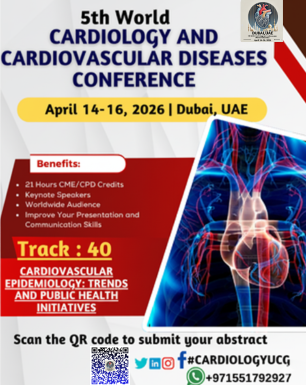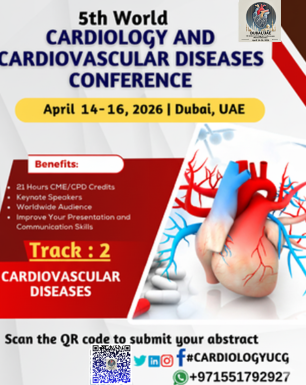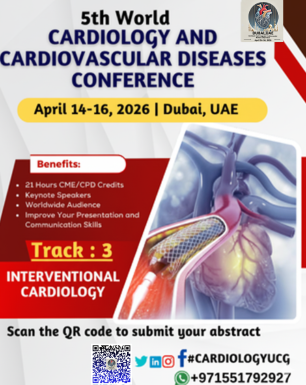



Sub Topics: Coronary Artery Disease, ...


Cardiovascular epidemiology focuses on the risk factors and social determinants that influence the prevalence and outcomes of cardiovascular diseases. These factors include genetics, lifestyle choices (such as diet, exercise, and smoking), socioeconomic status, and access to healthcare. The field has evolved to include not only the study of traditional risk factors like hypertension and hyperlipidemia but also emerging factors, such as mental health, air pollution, and socioeconomic inequalities. With cardiovascular diseases being a global concern, there is a pressing need to understand both local and international trends to design effective prevention programs.
The keynote for this session will address several key emerging trends in cardiovascular epidemiology, emphasizing how modern research is shaping public health initiatives and policy:
Rise of Non-Communicable Diseases (NCDs): In many low- and middle-income countries, there has been a significant rise in CVDs due to urbanization, sedentary lifestyles, and unhealthy diets. Understanding these shifts and their determinants is vital for implementing prevention strategies that target at-risk populations.
The Role of Social Determinants: Factors such as income inequality, education, and social stressors have a substantial impact on cardiovascular health. The keynote will highlight studies examining how these social determinants influence the incidence of heart disease and stroke and how addressing them can lead to better outcomes.
Technological Advances in Cardiovascular Disease Monitoring: The use of wearable technologies and big data analytics is revolutionizing the way we track and manage cardiovascular health. The keynote will explore how these innovations can be leveraged for both personal health monitoring and large-scale epidemiological studies.
Global Public Health Initiatives: The keynote will also discuss major global initiatives aimed at reducing cardiovascular disease burden, such as the World Health Organization’s (WHO) Global Action Plan for the Prevention and Control of Noncommunicable Diseases. These initiatives focus on policy changes, such as tobacco control, improved access to healthcare, and nutrition education.
Cardiovascular Risk Assessment and Precision Medicine: With advances in genomics and personalized medicine, there is a growing focus on tailoring risk assessments and interventions to individual genetic profiles. This approach could improve the effectiveness of public health strategies and interventions, moving away from the traditional "one-size-fits-all" model.